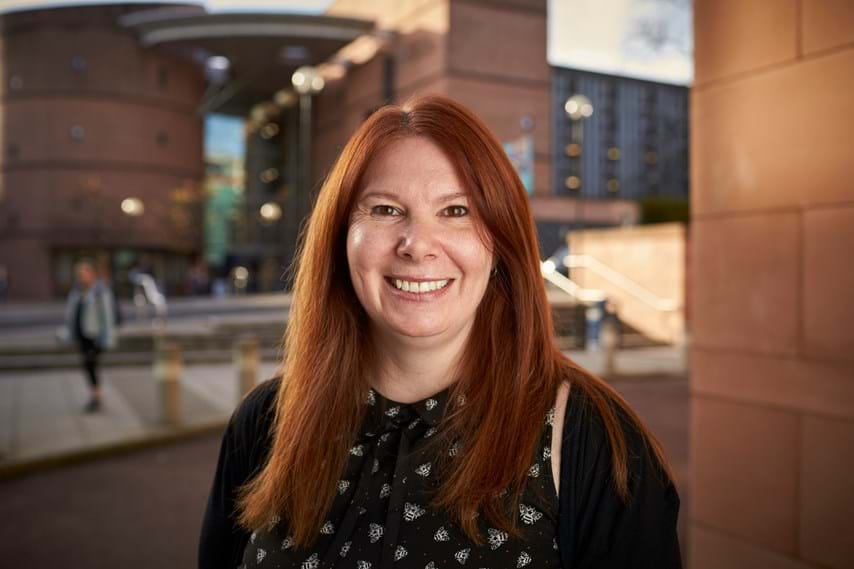Pause carousel
Play carousel

Today is International Left-Handers’ Day, a day to appreciate the 10% of the population who are left-handed.
We are celebrating left-handers today, but this group has not always been viewed so positively! Historically left-handers have been called ‘cow pawed’, ‘spuddy handed’ and ‘cack handed’. Even in Scotland we had our own local names for lefties, such as ‘kerrie fisted’ and ‘cloddy handed’.
Left-handers have also faced other challenges such as being pressurised to change their handedness (from left to right), using equipment designed for right-handers (e.g. scissors) or smudging their work when writing (resulting in messy paper and messy hands).
In fact, the start of my interest in researching handedness came from my experience of being forced to write with my right hand at school. Although my writing hand has changed, I still consider myself to be left-handed and carry out most actions with my left hand.
My interest in handedness (especially left-handers) has led to us conducting a body of work at Abertay, examining response style differences in left and right-handers. In our research, we have found that left-handers take longer to approach, or begin, a series of tasks when they are novel (similar findings have been reported in left-handed chimpanzees and marmoset monkeys). Interestingly, as soon as the task or situation is no longer novel, there is no difference in the time taken to approach between left and right-handers.
We have also examined personality and anxiety differences in left and right-handers. We found that left-handers report themselves to be more behaviourally inhibited than right-handers and, in novel situations, tend to have higher levels of state (current) anxiety than right-handers in a specific situation (something they can react to). We have also found, however, that general day-to-day anxiety does not differ between left- and right-handers.
We continue to develop our handedness research at Abertay and are currently working on projects with our students focusing on handedness-related stereotypes, identity and left-handers’ experiences of the world (a project named ‘Living Life as a Lefty’). Left-handers are often excluded from studies in psychology in order to reduce variance in data, but they are an important group who can provide us with very informative data!
So let’s celebrate this group today, and if you are interested in taking part in any of our studies or would like to find out more information, please do not hesitate to get in touch.
Dr Lynn Wright is an academic within Abertay's Division of Psychology. Click here for information on studying Psychology at Abertay.
